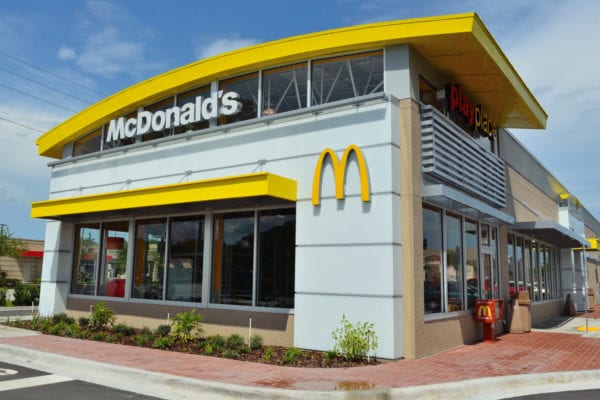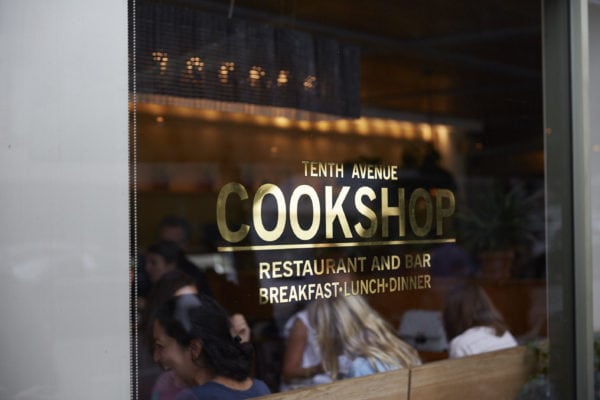Skift Take
Easy (bad) pun: This IPO tastes undercooked.
— Jason Clampet
The burger bubble has officially popped.
TV chef Bobby Flay said on Monday that he would sell shares to the public in his fast-casual chain, Bobby’s Burger Palace. The offering comes two and a half years after restaurateur Danny Meyer took Shake Shack Inc. public and a year and a half since Shack’s shares crashed, plunging from $90 to $32. It’s been stuck in the low 30s ever since.
Shake Shack had 63 outlets and $83 million in revenue went it went public. It now has 134 locations. Bobby’s Burger Place has 17. It has not made its financial statements public yet.
Flay told the Wall Street Journal his startup, which serves mostly burgers and milkshakes, will be able to catch up because it has more of “chef pedigree” and an innovative menu, including its signature Crunchburger, which the Journal described as basically a burger topped with potato chips, something many six-year-old chefs have cooked up as well. (I suggest salt and vinegar chips.) A review on Fredricksberg.com called the chain’s burgers delicious but bizarre.
But the too-little, too-late, me-too offering is not the biggest sign of the burger bubble. It’s how Flay is looking to get it done. Shake Shack’s IPO was underwritten by JPMorgan Chase & Co., Goldman Sachs Group Inc., Morgan Stanley and others. The underwriters of Flay’s IPO are the relatively unknown TriPoint Global Equities, which can be best described as a proprietor of subprime IPOs and other less-than-desirable investments.
It’s possible that TriPoint has underwritten some solid investments, but I haven’t found any. In 2008, TriPoint helped Viscorp, a company that sold “traditional Chinese medicines” in China, raise $15 million. The company’s stock, which traded as high as $5, now trades for half a penny. The next year, TriPoint underwrote a $10 million offering of preferred shares of ChinaNet Online Holdings, a media development and advertising company for small companies in China, which later bought a Korean fried-chicken chain. The preferred shares converted at $2.50 a share. ChinaNet’s shares now fetch $1.25.
But TriPoint’s most notable investment pitch was for 875 Holdings, a ticket reseller that said it had an inside track in obtaining seats for the Broadway smash “Hamilton” and Adele concerts. It did not. Earlier this year, the Securities and Exchange Commission sued 875 Holdings and its executives, calling the company a Ponzi scheme. TriPoint is being sued by two groups of investors, in two separate suits, who contend they were lured into investing a total of nearly $4 million in the “Hamilton” scheme.
TriPoint CEO Mark Elenowitz says that his company was just a placement agent for 875 Holdings and that it, too, was duped. He says members of his firm lost $2 million in the scheme. As for investment successes, Elenowitz cites the IPO of Myomo, which makes robotic arm braces that help restore function in semi-paralyzed limbs. Its stock went public in June for $7.50 and quickly rose to $19.25. It is now trading at $10.70.
In January, the New York Post reported that Flay was trying to raise money from private equity investors. That effort appears to have been unsuccessful. Bobby’s Burger Palace is planning to raise $15 million through a Reg A+ offering, a designation that was created two years ago by the JOBS Act, which is supposed to make it easier for small companies to raise smaller sums of money. TriPoint says it has expertise in Reg A+ offerings, like Myomo’s. The volume of the deals is still small, but rising. There have been three in 2017, up from just one last year. And the deals have a cheerleader. SEC Chairman Jay Clayton said last week in his first public speech that he would like to expand the JOBS Act, even though it seems clear that the law has allowed some questionable companies to raise money from ordinary investors.
It’s not clear why someone with the profile of Flay would sign up for a deal with TriPoint. But at least one answer is probably this: The burger business has lost its sizzle, and the only plan left is half baked.
©2017 Bloomberg L.P.
This article was written by Stephen Gandel from Bloomberg and was legally licensed through the NewsCred publisher network. Please direct all licensing questions to [email protected].
![]()



